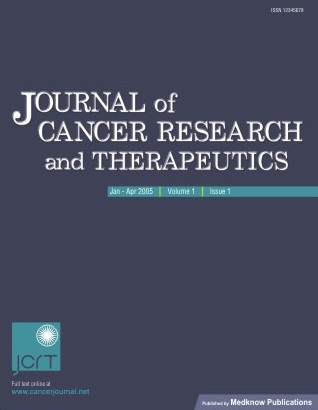
|
Journal of Cancer Research and Therapeutics
Medknow Publications on behalf of the Association of Radiation Oncologists of India (AROI)
ISSN: 0973-1482 EISSN: 1998-4138
Vol. 3, Num. 1, 2007, pp. 1-1
|
Journal of Cancer Research and Therapeutics, Vol. 3, No. 1, January-March, 2007, pp. 1
Editorial
Myth of finger printing and patents!
Huilgol NagrajG
Chief Division of Radiation Oncology, Dr. Balabhai Nanavati Hospital, S. V. Road, Vile Parle (W), Mumbai - 400 056
Correspondence Address:Chief Division of Radiation Oncology, Dr. Balabhai Nanavati Hospital, S. V. Road, Vile Parle (W), Mumbai - 400 056, nagrajhuilgol@gmail.com
Code Number: cf07001
The desire to fingerprint an idea, discovery or an invention is as innate to humans as the desire to own tangible wealth. Leonardo da Vinci wrote down his thoughts in a mirror-imaged script so that no one else could steal the authorship. Authorship and not monetary considerations were dear to scientists and thinkers. Madame Curie refused to patent her invention "Radium". She suffered considerable financial losses but humanity benefited by her largesse. Patents are about fingerprinting an idea or an invention so that ownership is clearly established. Indeed sometimes it means a gateway to accumulating wealth. There are nearly two million patents in the repository. Only a few of them have the potential to be of any commercial value. Patents could be on the product or the process itself. India which is a signatory to WTO and TRIPS has introduced patenting the product. This shift in policy can lead to considerable escalation of costs of crucial life-saving drugs in developing countries are sure to generics face the death knell. Generic formulations in the area of oncology and AIDS, anti-tuberculosis have helped millions of patients, in India and in many other underdeveloped countries. It may so happen that manufacturers of generics may be forced to go on the back foot once product patenting is implemented. There are legal provisions of special licensing to ensure the availability of drugs at a reasonable cost. It is, however, difficult to win the battle in favor of the community.
Growth of science and technology is a continuum. A series of steps, one preceding the other leads to any growth. Extensive studies on epidermal growth factors precede any drug design to block the growth factors. Hence assuming a unique and exclusive ownership like one's own fingerprints needs a debate. Patents are necessary to protect the rights of the authors and scientists. The members of the industry espouse vociferously the need to own exclusive right on intellectual property right. The industry, in the past, has gone overboard to patent Basamati rice, turmeric and neem and other products, the information of which has evolved over centuries. Patenting Harvard mice has impeded the growth of science. Patents are necessary to ensure returns to the companies which invest money in drug discovery. At the same time they may also impede the growth of science. Patents can't be wished away, neither can societal good. The collective wisdom is in striking a balance between the individual good and the collective well-being. Maybe it will help us if we remember that "fingerprints" are a myth.
Copyright 2007 - Journal of Cancer Research and Therapeutics
|
